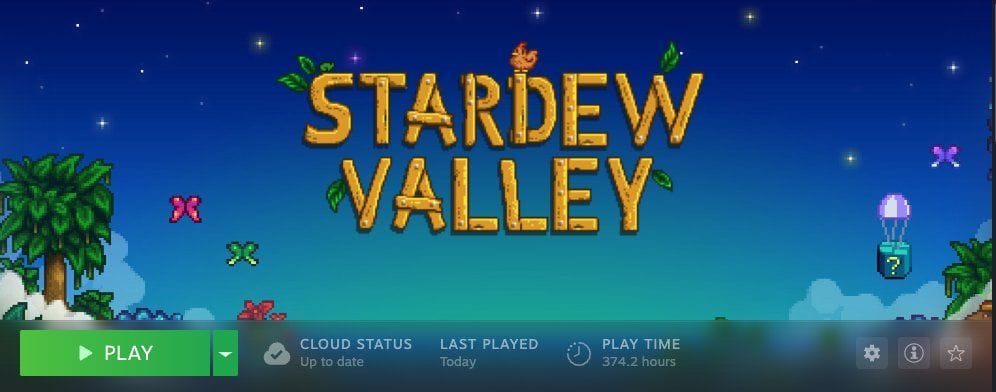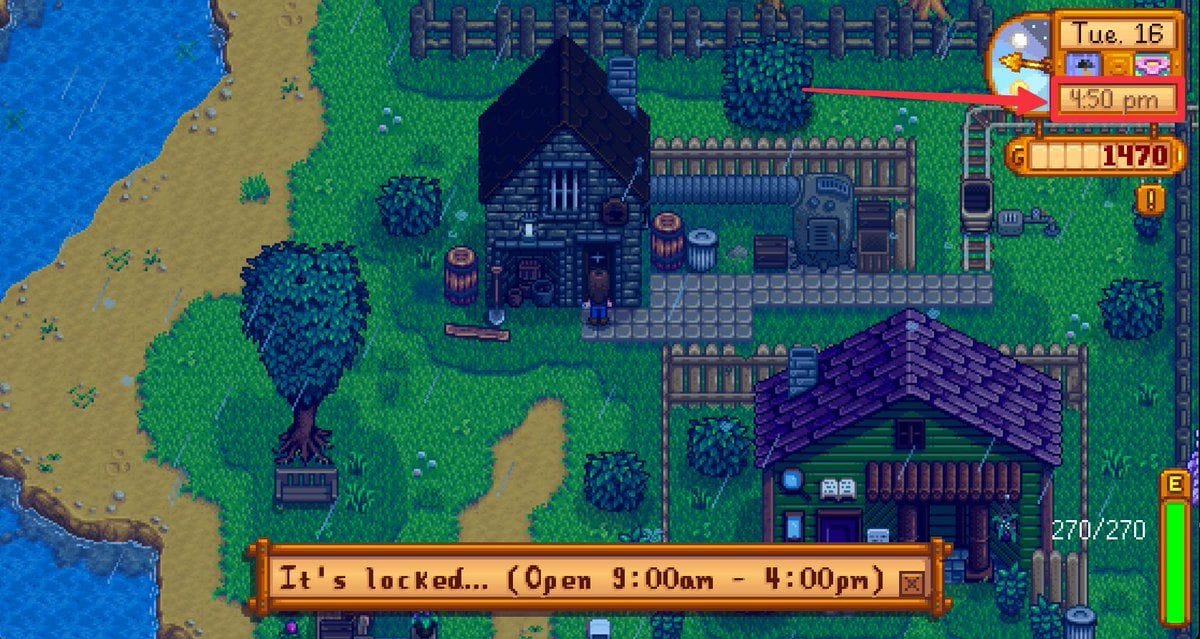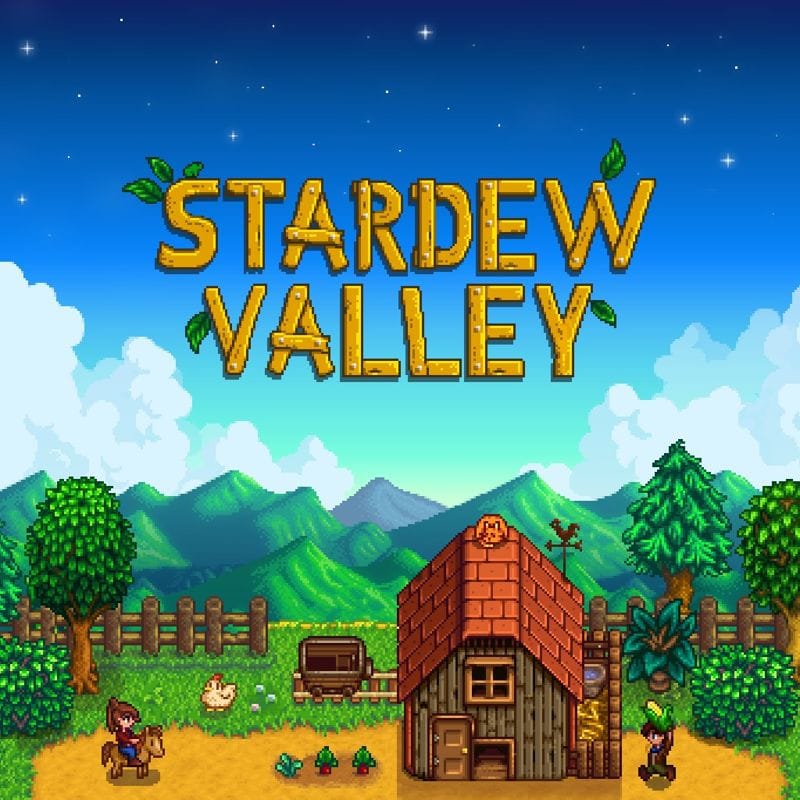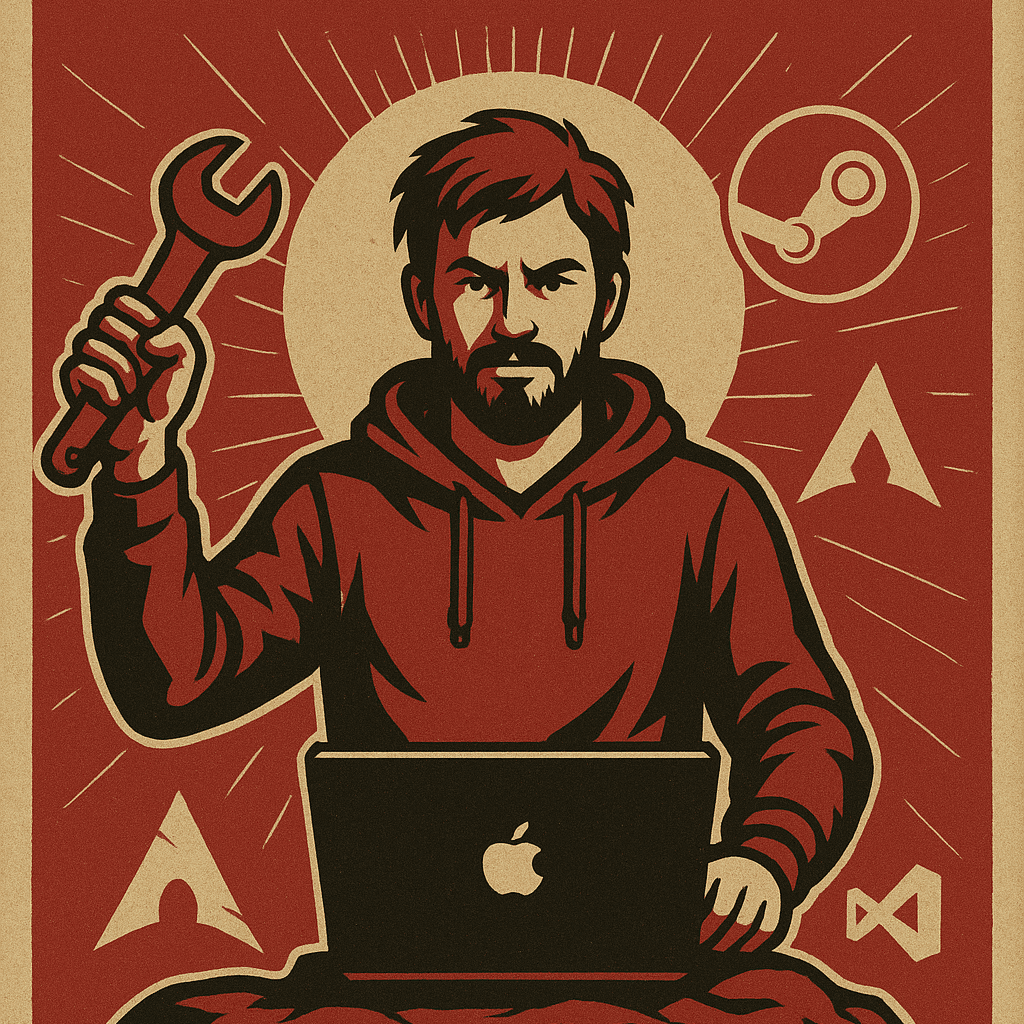I’m too cynical to consider myself cozy, and I don’t play that many games to consider myself a pro gamer, so when I start talking endlessly about Stardew Valley, people get confused.
Why are you into this game so much?
Is it like those Facebook farming games we used to play?
Looks like a game my grandma would play.
I’d fall asleep! It should be boring AF!
How many hours do you have in the game again?
I won’t lie: these remarks drive me nuts most of the time, but I still get the sentiment. Somebody who has never touched SDV would never get why it’s not “just another farming sim” or why other farming games still don’t hold up to Stardew, in my opinion. It’s cozy and heartfelt. At the same time, it challenges you without imposing.
It’s far from being boring or easy. Better yet, it can support anyone, no matter if you’re a casual or a speedrunner, and accommodate any play style you throw at it. Whether you like planning out everything as a minmaxer or want to decorate endlessly, you’ll find the appeal of this game if you give it a try. This is one but not the only reason it’s infinitely replayable. But wait, I’m getting ahead of myself!
The Vision
My personal experience with this phenomenon started in 2018. I spent invested 500-ish hours into my joy and well-being before giving it a break for 6 years (life happens sometimes). I took it back up as the 1.6 update dropped. It sucked me right back as if no time had passed.

The rest happened on mobile and Xbox, so it doesn’t show up on my Steam profile.
The rest happened on mobile and Xbox, so it doesn’t show up on my Steam profile.
But it was not the game that first hooked me—it was the SDV creation story.
I was fascinated by the idea of a single guy creating all aspects of a game—music, character design, story, coding—everything. Mr. Eric Barone (a.k.a. Concerned Ape, a.k.a the creator of this marvel) learned all the aspects of game development by making everyone’s favorite genre-defining farming RPG.
"And when it came to pixel art or other things that I had little experience in, I just dove in and did my best. As time went on, I started to get better at these things through hundreds of hours of practice.”
In my experience, throwing yourself into a field like this and learning by doing is exhilarating. It may be the best thing to ever happen to a person. It’s like exploring a new city without a map—cool, fun, and sometimes even dangerous if you haven’t been smart enough to buy an internet connection before “exploring the neighborhood” in Tbilisi.

Jess Lyovson
Husband and Me: Younger and Dumber, 2014
maybe iPhone, definitely a selfie
Jess Lyovson
Husband and Me: Younger and Dumber, 2014
maybe iPhone, definitely a selfie
I love practical learning. It’s fun, and it puts your personality to test. Learning while making something is easy, really: know what you want to make, break the goal down into smaller chunks, research the best ways to achieve the “checkpoints,” and do it. Only takes a couple dozen targeted practice hours, and voilà, you’ve made something.
Frying a perfect egg takes a few tries, but you learn it quickly. Sure, cooking a Gordon Ramsay-level Beef Wellington might take more skills and longer hours of practice, but the goal is to get started and keep moving.
A vision keeps you inspired. A plan keeps you on track. Consistent practices push you through tough times. Small wins prove you can do it.
You just need to be smart, take risks, and improve.
Funnily enough, the Stardew game mechanics rhyme perfectly with this approach.
You start with zero experience, an overgrown farm, and a dream. You wake up, do chores, complete quests, find secrets, and progress to The Summit one day at a time. Depending on how fast or slow you want to walk, what routes you want to take, what skills you want to develop, and when you want to stop, you get rewards and reach achievements. Eventually, fast or slow, with stress or in bliss–you get there. What’s important is that you don’t even need to get all the achievements. You only undertake it if you want to.
Reached perfection? Do you want to tear down your farm layout and reorganize it? Go knock yourself out! (Yes, you literally can do that with bombs as you dismantle the farm layout to build anew.) Or don’t. It’s completely up to you.
Do you get why I’m into Stardew so much yet?
“Too Many Decisions…” vs. “Wow, So Many Decisions!”
I was first confused by the sheer number of overwhelmed people on the SDV subreddit. “Too much to do, too little time in a day,” they say, “How do you manage it all?!”
For the uninitiated, there's (technically) no right way to play SDV, (technically) no deadlines, and (technically) no punishing mechanics whatsoever for doing or not doing a certain thing. Then why on earth would the slow-paced, nature-nurturing, fun-inducing gem of a game stress out anybody?
The truth is, if Stardew lacked this well-hidden perfectionist-oriented quality, it wouldn’t be as addictive as it is. It makes you high on your own achievements by rewarding effort. It’s precisely as stressful as you make it in your head. Do you plan to fish out the elusive catfish, gift Emily an aquamarine, and buy coal from Clint?

You get to the shop “just in time before closure” only to realize he closes at 4 PM!
You get to the shop “just in time before closure” only to realize he closes at 4 PM!
That’s it - you failed! Or did you?
Thinking about it, I believe it’s a lesson in time management embedded in game pixels. Maybe you should’ve planned only 2 tasks for the day, huh? Or maybe you could’ve memorized Clint’s schedule. It’s completely up to you to set expectations, challenge yourself, find new ways to interact with the game, and even break records. Or just enjoy the birds chirping and waterfall sounds in the valley and walk around like you own the place.
How about making another save and selling out to Joja Mart? Same game - different choices - different experience - different results!
Want to spruce things up? How about installing a mod or 20?
Complete freedom can be overwhelming, but it’s also, well, freeing!
A Skill Issue
Videogames are just that, right? Games. Unimportant, without consequences, and “not real.”
I’ve always thought so, too. I spent my childhood playing… the piano instead of GTA. The bottleneck was not having a powerful enough computer to play the triple-A games (along with prioritizing classical education, of course).
As a responsible adult, I, of course, mitigated the gap. We finally bought an Xbox a couple of years back. That’s when my gamer era really began.
Just kidding, gaming is brutal if you’ve missed it in childhood. It’s like trying to play the scales for the first time. Your muscles are not up to speed. Your reaction time is lagging. Your wrists get sore. You’re miserable in the beginning. With practice, you get better, of course, but you don’t become a gamer overnight. Nobody keeps you from trying, though, when you’re an adult.
So, Stardew Valley was one of the first games I 100%-ed (on PC, back in 2018). Then I completed Hogwarts Legacy, played Forza Horizon, enjoyed (not enough of) Skyrim (too afraid to commit and neglect my actual job, the aforementioned husband, and life in general), dabbed into Mortal Kombat, and tried out many other games casually.
You know what? Playing games builds character and makes you push through hardships like nothing else.
During my first Stardew playthrough, I really hated the fishing mini-game and avoided it at all costs. Now, fishing is my first go-to early-game money-maker.
I used to stash the slingshot in a chest and forget it existed (only because trashing it would be evil). Now, I’ll restart the day if I forget to buy explosive ammo. How else would I get 500+ iridium ore in a day in Scull Caverns?
Gaming makes you challenge yourself in ways that you might not even think possible. First, you get determined to beat Mayor Lewis in Junimo Cart. Next thing you know, you’re finally starting to blog in real life.
I believe playing video games is underrated, even vilified in our society sometimes (especially by parents). All video games build skills. Some of them do it gently; others test your mettle. Sure, some skills translate into real life, and some don’t. However, the persistence you show in-game definitely does.
Video games build character, make you more determined, help you think fast and smart, react, and consider consequences. They also suck you into their imaginary world and provide an escape from daily chores, anxiety, and dullness. Don’t we all need a bit of escapism in our lives?
Stardew is the perfect escape; that's why I love it.



